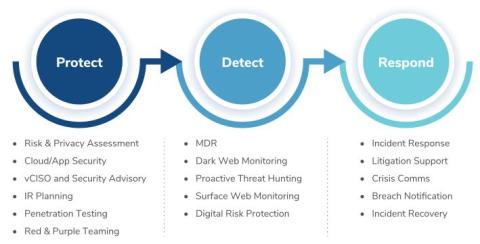Q3 2023 Threat Landscape Report: Social Engineering Takes Center Stage
Social engineering in its many forms took center stage in Q3 2023. The quarter saw “human hacking” evolve from a long-standing security challenge to threat actors’ method of choice. This was evidenced by our observations of the dramatic escalation of social engineering tactics, with significant increases in phishing, smishing, valid accounts, voice phishing and other tactics—adding up to the highest volume of incidents we have seen in 2023.



